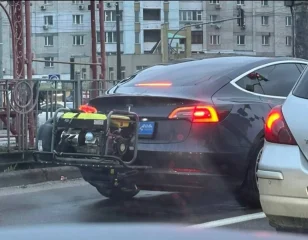JA,
Nope. I'm neither a greenie nor denier. Tell me something logical, especially with factual backup, and I'll agree.
From my own experience, there are coming problems with the environment and there are improvements in the environment.
Bad:
The 20 years that I owned a beach house and noticed the water getting closer to it. Glacier Nation Park having no glaciers. Fishing off the MD coast - don't bother - nothing worth catching anymore.
Good:
In the 70s I fixed copiers for a living. In the summer in DC, I would often walk breathing through my tie because the air was so terrible. I never see a bad day today and in 2022 there was only one substandard air quality day. We all hated the automobile pollution controls of the 70s, but they worked. There are now about 3 times as many cars than 1970 in the DC area and the air is clean. The DC area has no industry - almost all pollution comes from cars.
I've been that assure by some that God will do whatever it takes to resolve any environmental problems and even if not, the Earth is a big place that can handle it. I would rather be a greenie than an Ostridge with my head in the sand! I was also assured that there is no such thing as the "greenhouse effect" and that any excess heat is simply dissipated to space - when I asked why all heat does not dissipate to space, the genius reply: "It's a closed loop system".




